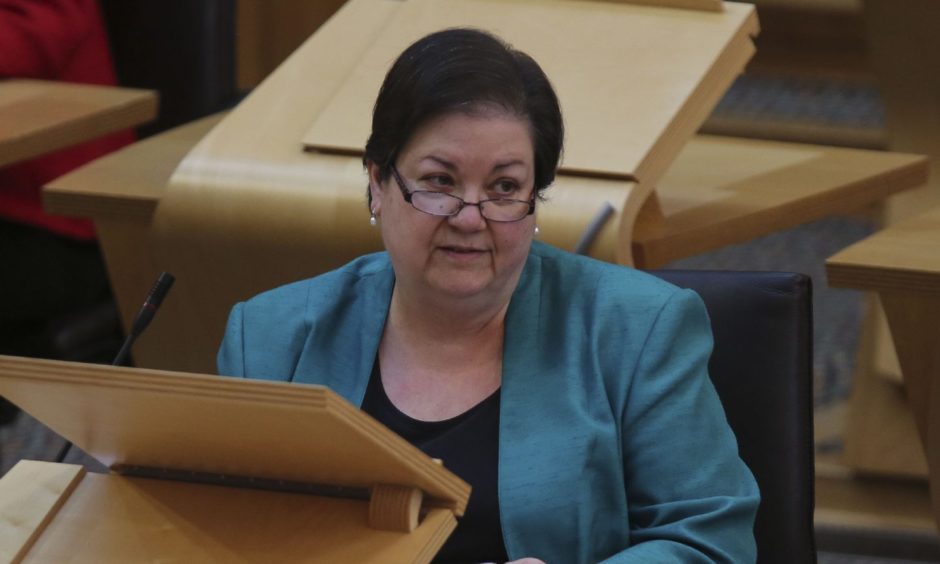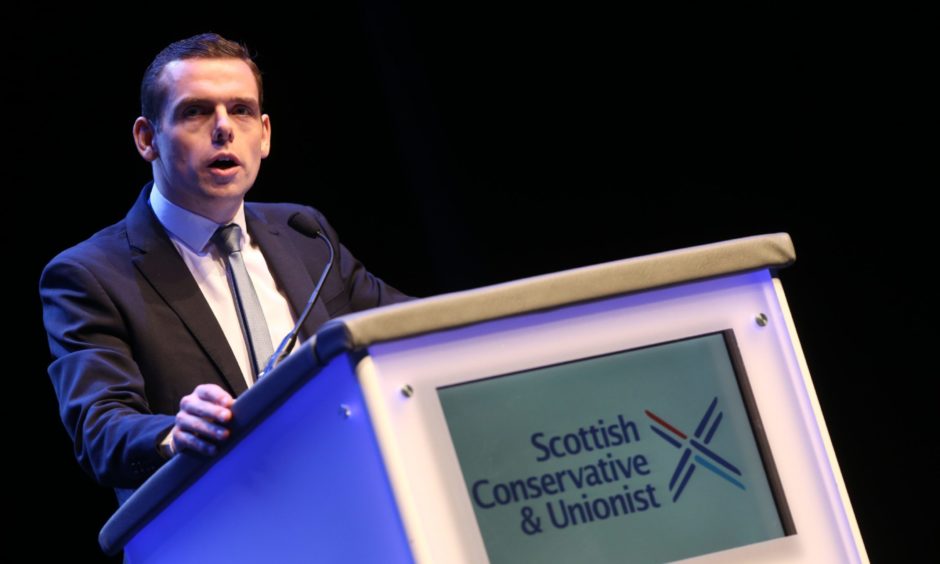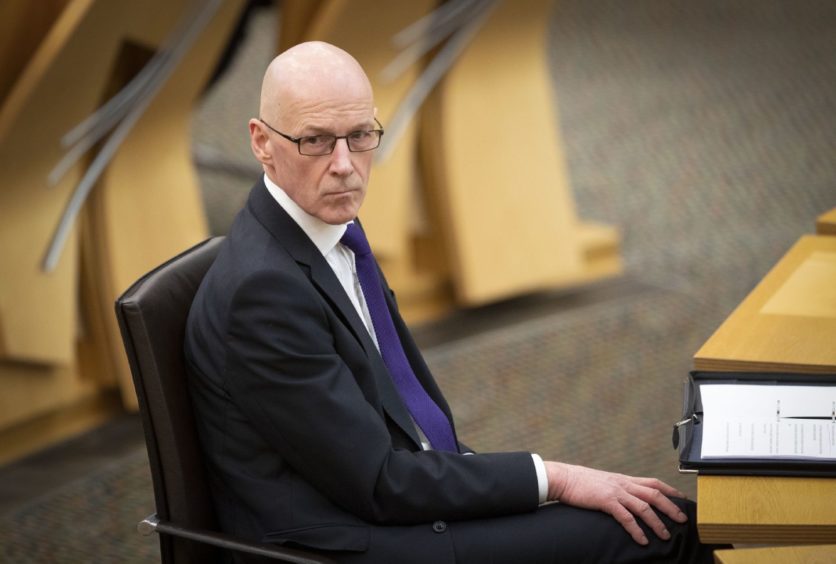There should be no time limit to how long civil servants or government employees can make complaints alleging sexual misconduct against Scottish Government ministers or former ministers, a report states.
Laura Dunlop QC published her investigation into the Scottish Government
procedure for handling harassment complaints involving current or former ministers on Tuesday evening.
Ms Dunlop QC was instructed more than six months ago to look at procedures in the wake of the failed judicial review brought by former first minister Alex Salmond.
In her review, she made 10 summary recommendations into how the government should handle any future misconduct complaints.
The current procedure for judicial complaints has a time limit — three months after the incident is said to have taken place.
Investigations should be made ‘independently’
In the course of her investigation, in discussion with stakeholders including trade unions, Ms Dunlop concluded there should be no time limit to complaints of a sexual nature, but consideration should be given if the complaint was of another kind.
If a complainer does not wish to involve the police, then that should be respected, while investigations into complaints against former and serving ministers should be conducted “independently”.
Those conducting the investigation should have no close association with the person accused or the complainer before or during their study.
The Scottish Government said it would have an implementation plan in place by June in response to Tuesday’s publication.
Complete summary of recommendations:
- There should be no time limit in any process for investigating complaints of
sexual harassment against serving or former ministers, although consideration should be given to including a time limit, probably of less than three years but with an override provision, in relation to complaints of other types. - There should be consideration of whether to include in any policy about
complaints against Ministers a provision allowing a complainer’s wish to avoid police involvement to be respected. - Whether within Fairness at Work, or in a separate document referred to within
Fairness at Work, there should be one process governing the raising of a complaint against a minister by a civil servant. - There should be inserted into any code or policy governing an investigation into
the conduct of a Minister an obligation to arrange specific support for the minister during the investigation process. - A screening process (‘initial assessment’) should be adopted, to decide whether
a complaint by a civil servant against a minister requires to be handled under the Ministerial Code or follow the process of Fairness at Work. - The screening process should be along the lines of that which is set out in
paragraph 6 of Handling of Harassment Complaints involving Current or Former Ministers’ (HHCM), confined to an initial report of a complaint against a Minister and including a brief account of facts alleged by each person without any views as to credibility or reliability. The report should note evidence (witnesses and/or documents) potentially available and record whether
there is any agreement as to facts and what the complainer is hoping for by way of resolution. - The person conducting the screening process should have access to legal advice.
- Anyone involved in factual investigation to any extent of a complaint against a
minister should be free of prior involvement with any aspect of the matter being raised and should have no close association with either party before or during the investigation. - Consideration should be given to the introduction of a process of censure with
consent, to denote an acceptance that there has been unacceptable conduct on the part of a minister towards a civil servant. If such an innovation does occur, there should be a post-outcome review of any early application. - Formal complaints against a former minister should be investigated and
adjudicated (meaning reaching conclusions as to facts and as to whether a relevant provision has been breached) independently.
SNP ‘failure’
Scottish Labour deputy leader Jackie Baillie said the SNP government should have taken professional advice earlier.
She said: “This review by Laura Dunlop QC is welcome and confirms that the Scottish Government’s sexual harassment policy was not fit for purpose.
“What is truly astonishing is that the SNP government did not take this advice when developing the policy, instead of rushing it through. Had they taken professional advice beforehand they might have devised a fairer, more effective policy; they could have avoided an expensive and failed judicial review and – vitally – protected the women involved.
“It is a damning indictment of the SNP and their failure that let women down who complained about the former First Minister.
“The recommendations make it clear that any further complaints of this nature against a former minister must be managed independently and separate from those with any prior interest with any of the parties.
“The Scottish Government must now implement these recommendations, ensure that such an expensive and damaging fiasco will never happen again and that there is a robust policy in place for the future.”
‘Tried to bury this review’
Scottish Conservative leader Douglas Ross said the nationalists had tried to “shut down scrutiny” of their procedures.
He said: “It’s clear why the SNP Government tried to bury this review late in the day, after a lockdown easing statement.
“They have tried to shut down scrutiny throughout this affair and today they sneaked out a report that lays bare 10 glaring flaws in the way the SNP Government handles sexual harassment complaints.
“They completely failed the women at the heart of this scandal by using a catastrophically flawed procedure to investigate Alex Salmond.
“The SNP Government were doomed to lose this case. This review spells out that it had no hope of succeeding because of the contact between civil servants and the complainers.
“If the government had not withheld information from their own lawyers, more than £500,000 would have been saved, and Alex Salmond could have been investigated properly.
“They must abandon this disastrous procedure and build one that actually works. Nicola Sturgeon appears to be retaining this “problematic” procedure to save herself the embarrassment and political damage of admitting they got it badly wrong.
“Until this procedure is fixed, more people can be let down at any moment.”
Women were ‘let down’.
In response to the publication of the report, Deputy First Minister John Swinney apologised to the women who made complaints for their being “let down”.
He said: “The Scottish Government welcomes this independent review and the constructive, forward-looking recommendations that Laura Dunlop QC has made.
“We will now work with the Scottish Government Council of Unions, on how these could be implemented, noting that in some instances it will require us working across institutions to find a way forward.
“Our shared priority is to have in place policies and procedures that allow any future complaints to be raised and investigated with confidence.
“I would reiterate the Scottish Government’s apology to the women who had the courage to make the harassment complaints – they were let down, and it is only right to ensure that lessons are learned for the future.
“Bullying or harassment of any kind is unacceptable and we want staff to feel safe and supported in raising concerns.
“We will finalise an implementation plan by June which draws on the lessons highlighted by this review, as well as the forthcoming report from SGHHC Committee.
“I am grateful for the attention Laura Dunlop has given to these important matters.”



